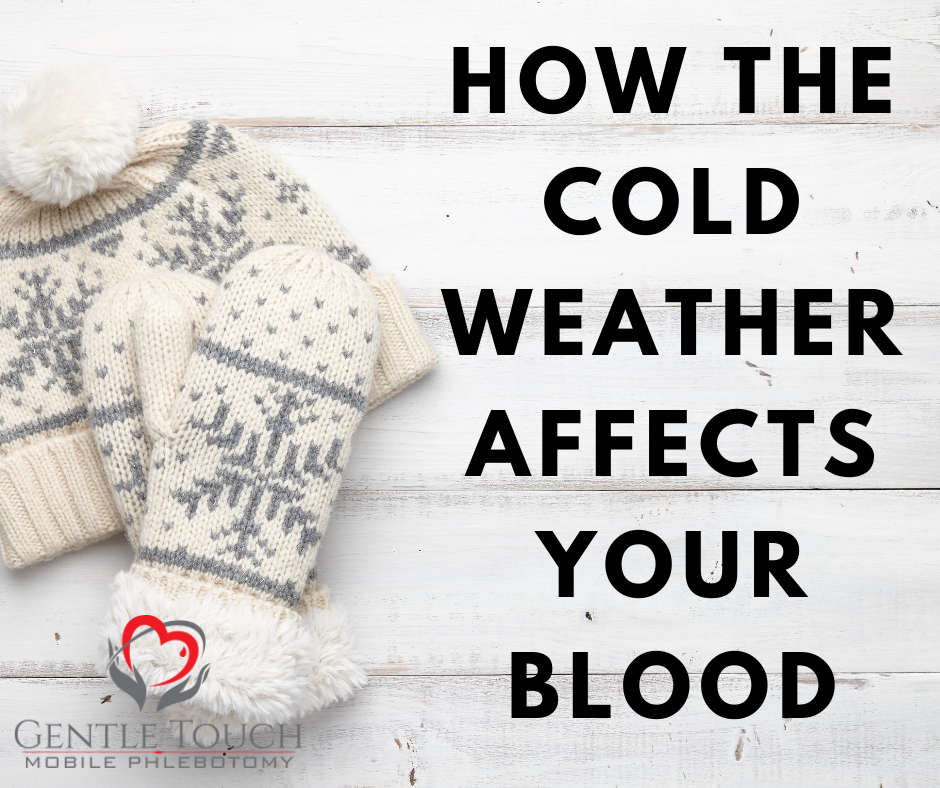It is officially winter and it’s time to bundle up and stay warm! As many people prepare themselves for the possible seasonal cold and flu, it’s important to know that cold weather can impact the health of their blood.
Research has shown that there is a correlation of about 200 additional heart attacks in a single day when there is a 1.8°F reduction in temperature; and there are about 53% more heart attacks in the winter.
So, why are the highest cold-induced cardiovascular risks happening just days, or even hours, after exposure to the cold? The risk of having a heart attack is higher in the winter months due to the impact it has on the blood flow in one’s body. This is not necessarily linked to the low temperatures, but rather the change from a warm to cold temperature.
Thermal stress on the body as a result of sudden changes in temperature, will cause the body to work harder to maintain its consistent maintenance temperature. Thermal stress has an explicit effect on the viscosity of blood; making it thicker and sticky, and more likely to clot.
When exposed to temperatures that cause the body to shiver, the blood supply is shut off from the skin to internal organs; leaving your veins to keep those precious organs warm and working. Leaving the blood vessels constricted to help conserve body heat raises blood pressure, as well as creating a narrower space for blood to circulate. Clotting can occur due to the millions of blood platelets trying to move through the constricted passages, which increases the possibility of them sticking together.
WHAT PRECAUTIONS CAN YOU TAKE?
Winter inevitably slows down healthy habits; the yearning to stay inside and be warm and eating winter month treats. Although even the healthiest of individuals are able to adapt to sudden temperature changes, many people with underlying health conditions, and the elderly, are more susceptible to the cold affecting their blood health.
As explained above, the risk of suffering a cardiovascular incident is higher when the blood flow is constricted and clotting occurs. Some of the best ways to manage the health of one’s blood, especially in older age, is to be aware of blood pressure and cholesterol intake.
High blood pressure and cholesterol, mixed with cold weather, is a recipe for disaster. So what are some habits people can take on to stay healthy and ensure a strong blood flow all year long?
STAY WARM
Bring on the layers! Wrap up in layers, especially when exposed to cold temperatures for an extended amount of time. Aside from staying warm outside, keep the house warm as well. This means keeping the temperature of the home at least 65°F. Having regular hot meals and drinks is also a great way to maintain the body’s temperature.
STAY ACTIVE
Any type of movement is perfect for the body. Moderate exercise is vital to keeping the blood flowing and the body warm. Try not to shock the system if exercising outside, allow the body to adjust to the lower temperature, a brisk daily walk is an excellent option.
STAY HYDRATED
Hydration is absolutely key to keeping the body and blood healthy and moving.

